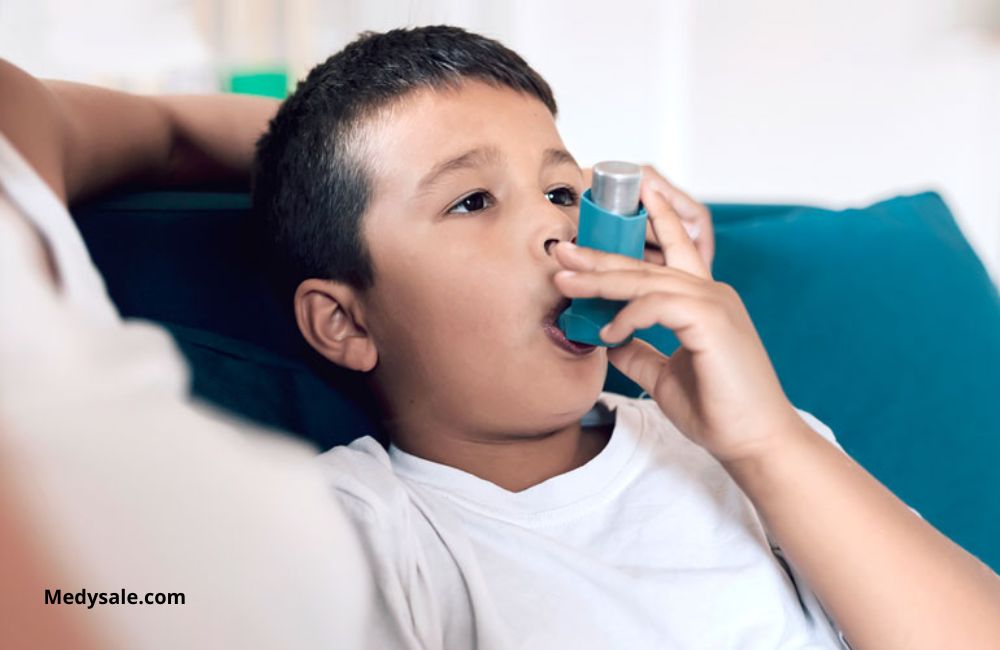A medical professional should be consulted if children under 5 years old wheeze or have other symptoms that indicate they are suffering from respiratory problems. You may be suffering from bronchial asthma, allergic reactions, or other symptoms. However, your toddler might not. There are many factors you can learn about Asthalin Tablets, such as Iverheal 6.
Respiratory problems can be caused by many childhood diseases. It is sometimes difficult to determine the cause. Here’s how to diagnose bronchial allergy in children under five years old.
Diagnosing Asthma in Children Under 5
It is a fascinating fact that children under five years old cannot be officially diagnosed as asthmatic. Although medical scientists attempted to determine a way to diagnose bronchial asthma in children as young as three years ago, the results were not definitive. You can get factors approximately Asthalin Tablets Like, Iverheal 12 Dosage at woodstockfamilymedicine.net.
Wheezing, wheezing and difficulty breathing are all signs and symptoms of bronchial or lung conditions. Research shows that 33% of children wheeze earlier than they flip. It is difficult to diagnose allergies in children as they tend to have more symptoms and signs when they are sick.
Asthma signs are similar to common teenage ailments. It can be difficult to distinguish one from the other. With the help of a healthcare professional, you can evaluate your child’s symptoms and make an educated decision. Your toddler may have allergies to some symptoms.
Is Asthma Possible in Children Below 5 Years of Age?
Early signs of bronchial asthma can be detected even though it is difficult to diagnose in children younger than five. When comparing the signs and symptoms of your toddler with your own, keep these elements in mind.
Family History
Asthma can be caused by genetic factors. If you have bronchial asthma or a family history of bronchial asthma, your baby may also be affected. These statistics, combined with poor lung health, could indicate that your baby has chronic problems. Your family history gives medical doctors information that can help determine the state of your infant.
Worsening symptoms
Young children cannot explain what they feel so it is important to have someone who is observant and can help them understand. You should look out for symptoms that are persistent and do not seem to “permit” your toddler’s passing. These are questions that you should ask your toddler if they have allergic reactions.
- Is your toddler a whiner? Tightened airline regulations can cause wheezing to produce a high-pitched sound.
- Is your infant always coughing? If your infant is constantly coughing, it could be a sign of bronchial asthma.
- Is your toddler motivated to breathe by strong emotions such as crying or guffawing? This is a sign of tightening of the bronchial tubes. This is a hypersensitive reaction attack with a high capacity.
- Is your toddler prone to panting when they are participating in sports? If your infant is having trouble breathing, it may be because they are panting.
- How often does your infant take care of their breathing problems? Allergies can be caused by these attacks, whether they occur at night or in the morning.
Worsening symptoms can indicate that there is more to the problem than regular youth illness. Scientists believe that infants who experience wheezing or shortness of breathing three times or more may have hypersensitive reactions.
Evidence of Allergies
All people are affected by airborne allergens in different ways. While some children may not feel any adverse effects, others might experience respiratory problems or decreased lung function. Your doctor may perform blood or pores and skin tests on your infant if they show signs of allergy. These tests will show if your child has allergies. Children with allergies are more likely to develop allergies.
Asthma symptoms in children under five
Your toddler’s allergies will be diagnosed over time. You can help your toddler manage their allergies by taking steps in the interim.
Avoid Triggers
Bronchitis attacks can be caused by triggers. There are many factors that can trigger Asthalin Tablets. Parents should be familiar with the exact types of allergy triggers and how to protect their children from them.
To avoid asthma triggers, you may need to make changes in your home. A home that is safe for asthmatic babies can be made more secure by dusting off dirt mites and disposing of chemicals. To prevent your condition, Asthalin Inhaler and Duolin Inhaler can be used.
Triggers can vary from one person to another. It is important to be able to identify what causes your infant’s bronchial allergy and what you can do about it.
It is important to be aware that triggers can change from time to time. You should consult your doctor if you notice any changes in your infant’s triggers.
Observe patterns
Triggers can take many forms. This is the time of day when triggers occur and what causes allergic reactions in your child. It is possible to identify the triggers. There are many factors about Asthalin Tablets. For example, you can find iverheal 6.
With an Asthma Action plan, Plan Ahead
According to the Mayo Clinic, it is a good idea to create a hypersensitive reaction plan. This plan will help you understand what to do in case of an allergic reaction. This plan can be used to help your child communicate their concerns about Asthalin Tablets. You can ask them to locate their belongings.
Primary data such as their name and medications must be included in the allergies movement plan. It must also include what to do in the event of a bronchial asthma attack. While looking for medical attention. This plan will provide you with peace of mind. This will ensure that you are prepared for any emergency.



